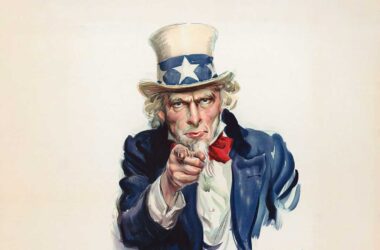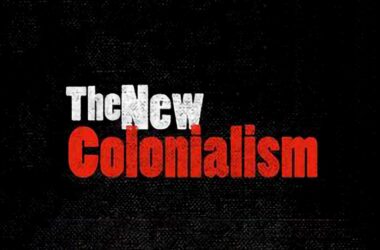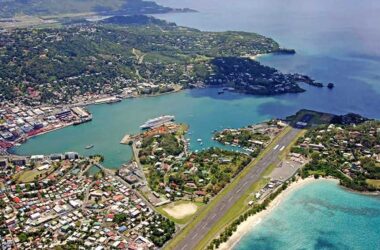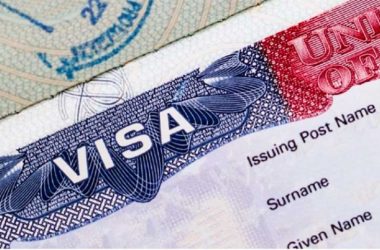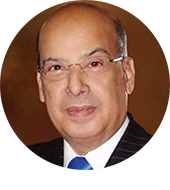
(The writer is Antigua and Barbuda’s Ambassador to the United States and the OAS. He is also a Senior Fellow at the Institute of Commonwealth Studies at the University of London and Massey College in the University of Toronto. The views expressed are entirely his own)
Many countries in South America are now in a state of troubling unease. Recent events in Peru have catapulted it to the forefront of security concerns in all its dimensions. But worry also exists about other countries which are tiptoeing through political minefields that could explode overnight.
Although the causes of these conditions of dysphoria are ascribed to hostilities between political parties in their constant battles to control power, the root of the problem lies in inequality, injustice and racial and ethnic discrimination.
The dispossessed, throughout Latin America, found a voice and a champion among left-leaning parties which demand change. The elite and the privileged, including the military, maintain their economic and social advantage through right wing political parties and alliances with powerful multinational companies from North America and Western Europe. The two sides are persistently in conflict.
These conditions have been portrayed in the poetry of Pablo Neruda, the novels of Isabelle Allende, Gabriel García Márquez, and Mario Vargas Llosa among others; and in the painstaking research and raw descriptions in the works of Marie Arana and Eduardo Galeano.
In his seminal work, Open Veins of Latin America, in one sentence, Galeano poignantly describes the structural divide in many Latin American societies – “The system has multiplied hunger and fear; wealth has become more and more concentrated, poverty more and more widespread. That is recognized by the documents of specialized international organizations in whose aseptic vocabulary our oppressed territories are ‘countries in the process of development’ and the pitiless impoverishment of the working class is ‘regressive income distribution’.”
And, inasmuch as the judgement may seem harsh, there is a sobering truth in Marie Arana’s assertion in, Silver, Stone and Sword, that “… extractive societies such as Latin America’s are built on social injustice. They are designed and maintained by a ruling class whose primary goal is to enrich themselves and perpetuate their power. They thrive when absolute privilege reigns over absolute poverty”.
None of this is to say that, over the years, progressive elements in Latin America have not succeeded in pushing for institutional change. They have been aided in the work of the United Nations Human Rights bodies, and in the efforts of the Inter-American Commission and Court on Human Rights. Authoritative external organizations have been hugely instrumental in pushing governments to adopt international treaties on human rights and non-discrimination.
But adherence to treaties and laws is only as good as effective implementation of their values. In this connection, not all law enforcement agencies and governments have been as dutiful as they could have been. Thus, inequality has continued and the desire by the disadvantaged to overturn it has escalated.
The role of the military has also not been neutral or respectful of their constitutional requirement to be apolitical servants of the executive branch and subordinate to their civilian commander-in-chief, the President. As social unrest escalated throughout Latin America in the decades between 1964 and 1985, military dictatorships took control in several countries including Brazil, (1964), Chile (1973), Uruguay (1973), and Argentina (1976).
It was the military that pressured Evo Morales in November 2019 to abandon his disputed Presidency in Bolivia. The same military acted heavy-handedly to subdue street protests over the controversial installation into the Presidency of the right-wing, opposition representative Jeanine Añez.
While in Argentina and Chile, the return to democratic regimes was “accompanied by transitional justice, a reckoning with the past and a recognition that the armed forces had strayed from their constitutional mission”, as one political commentator put it, the role of the military in Brazil and Peru remains questionable.
Brazil’s President Lula da Silva dismissed the country’s army chief, General Julio Cesar de Arruda, in the aftermath of the storming of several government buildings by the supporters of former President Jair Bolsonaro on January 8. Lula said he suspected collusion by “people in the armed forces”.
In Peru, where elected President, Pedro Castillo, was ousted on December 8, after an ill-advised and clumsy attempt to suspend the Congress, which was seeking to impeach him, his vice-president, Dina Boluarte, was sworn in to replace him. He was carted off to prison at a police base that triggered protests in the rural areas and poorer neighbourhoods in the capital.
In response, police raided San Marcos University, detaining hundreds of protestors. This was part of a violent crackdown on the protestors which has left many dead or seriously injured. The UN Office of the High Commissioner for Human Rights (OHCHR) in Peru condemned the Peruvian administration over the violence used to curb the protests.
But the fundamental problems, driving the unrest remains ignored – a huge gap between rich and the poor, particularly the people in the South of the country who feel neglected by its institutions and, most of all, its hugely unpopular congress, which is largely viewed as a tool of the rich and powerful.
Hemispheric institutions, such as the Organization of American States (OAS), should seek a constructive role in Peru, and they must keep a watchful eye on the military and right-wing forces in Brazil which may yet turn on President Lula.
It is difficult to see what practical role the OAS can play in resolving the political issues in Peru, but, at the very least, the member states must let the Peruvian government know that further brutality against protestors will receive the strongest condemnation; and, instead, they should seek meaningful dialogue to address the deep-rooted issues in the country.
In the meantime, Caribbean governments and political parties should ensure that, in their own countries, economic inequalities must be discouraged. Dissatisfaction is fueling the fire of unrest in Peru and other Latin American countries; it must not spread to the Caribbean.
Responses and previous commentaries: www.sirronaldsanders.com





